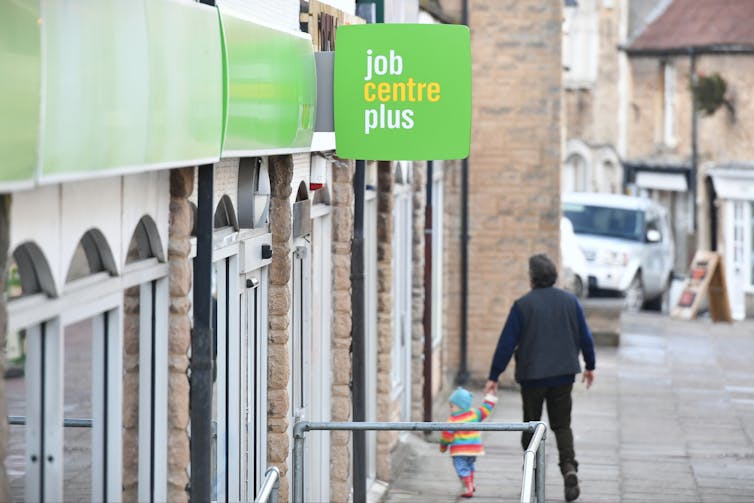Social security reform in the UK over the years has increasingly prioritised placing people in paid work, often using the threat of withholding benefits as an incentive to find a job. These systems pose particular challenges for unemployed mothers, and the new Way to Work campaign is no exception.
When the government introduced universal credit in 2013, it increased the work preparation and job search requirements that parents have to carry out in order to receive benefits. Under the old social security system, single parents had to carry out a set number of job searching activities (like preparing a CV or contacting potential employers). This changed under universal credit, which instead requires them to dedicate a mandatory number of hours to job searching (up to 35 per week) or face benefits sanctions – the partial or complete withdrawal of benefit payments.
The government touted universal credit as an “opportunity to promote equality in work and narrow the employment gap”, as most of the parents who would be affected by these conditionality requirements were women. But work-first approaches like this actually contribute to gender inequality in the paid labour market, by compelling mothers to take the first available job regardless of compatibility with education, experience and caring responsibilities.
The focus in universal credit is getting claimants into any job quickly. Claimants used to be given three months to search for jobs in their previous occupation or sector. Under the new Way to Work campaign, this has been reduced to four weeks. At that point, if claimants do not look for work in another sector, their benefit payments could be cut or reduced.
This approach to getting people into any paid work quickly may be particularly harmful to mothers, who already have a weaker position in the labour market. Mothers are more likely to be in low-paid, insecure jobs like cleaning and catering. The gender pay gap (the difference in pay between men and women) increases rapidly for many women after they have children. The Resolution Foundation thinktank has also found that compared to men, women particularly struggle to progress in paid work, probably because of caring responsibilities. By pressuring mothers to enter paid work quickly rather than helping them obtain sustainable jobs they are qualified for, mothers will face an even bigger challenge in advancing in the paid labour market.
In interviews with mothers receiving universal credit, I have found that when they entered paid work, it was mainly in low-paid, insecure, part time jobs, often below their qualification levels. The requirement to take “any work” was written on the participants’ claimant commitments, a document created at the start of the universal credit claim stating their work-related requirements. Participants were frequently reminded of the sanctions that could be issued if they did not fulfil these obligations. Many felt under significant pressure to obtain paid work quickly. As one coupled mother with two children explained:
You just think, ‘oh my God if I’m not doing everything in my power to be working’, and you know so you’ll just take on whatever work you can such as working away for a month or whatever, which is fine for some families but is not necessarily the right fit for us.

The lack of moves into adequately paid, sustainable jobs may be partly due to the emphasis in the universal credit system on ensuring claimants carry out their requirements rather than on providing specialist support in entering paid work. Women reported that they were offered minimal support in obtaining paid work. Instead, their appointments at job centres were mainly about checking they had met their requirements. One single mother with two young children said:
I think she [JobCentre Plus staff member] was to check things and just update the computer … rather than any kind of careers advice.
Stunted growth
Mothers also told me that the work-related requirements in universal credit held them back from working towards their long-term work aspirations. One single mother who was undertaking a part time degree expressed frustration at the requirement to undertake paid work, as it got in the way of her studies, which she felt were important to her family’s long term financial situation:
That’s the one that’s having to take more of a back bench I’d say, which is not ideal is it, ‘cos that’s the thing that I really really need for our futures to be concentrating on.
This mother had to take some time out of her studies as she was overburdened by her responsibilities towards her three children, her studies and her work-related requirements. Other research has also found that subjecting mothers to work-related requirements limits their opportunities for training and education. This is problematic given the importance of training and education to women’s ability to enter paid work and to their long term earnings.
Making mothers search for “any job” under the threat of sanction will not help improve gender equality in the paid labour market. Instead, mothers need specialist support in obtaining paid work that fits with their caring responsibilities and is helpful to their long term financial security.

